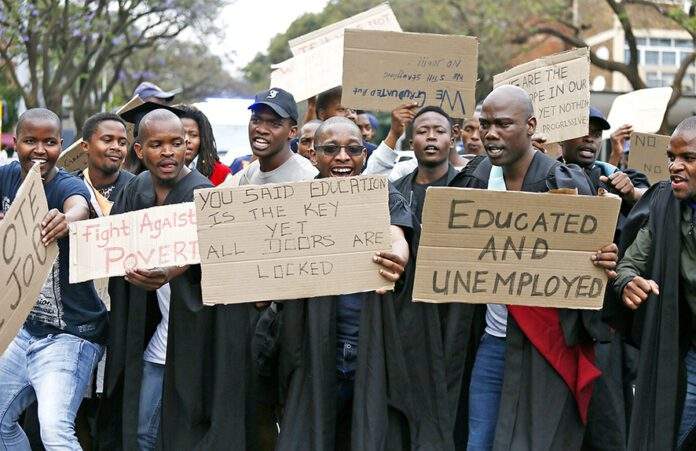The rapidly rising unemployment rate in South Africa is expected to trigger protests similar to the recent student riots in Bangladesh, according to economist Mandla Maleka.
Maleka predicted that the unemployment crisis would create a stir, driving the approximately 8.5-million people who are of working age to the streets as a way to express their unhappiness.
Aljazeerah reports that after a violent police crackdown, the riots in Bangladesh, which started in July over a controversial government job quota scheme, spread throughout the country.
About 300 people were killed in a matter of weeks during one of the bloodiest moments of Prime Minister Sheikh Hasina’s 15-year tenure.
The students in Bangladesh were opposed to the government’s job quota system, which reserved some positions for the offspring of the War of Independence fighters of 1974.
The protests forced the prime minister to resign and flee the country.
Maleka claimed that even though the causes of South Africa’s unemployment problem were different, the country’s growing unemployment rate was enough to spark the same uprising.
Second-quarter jobs data
His comments come after Statistics South Africa released a report on Tuesday showing that the unemployment rate for the second quarter increased to 33.5% from 32.9% in the first quarter.
“The sore point is that, when looking at these figures by race classifications, black Africans account for the most unemployed at 37.6%, higher than the national average,” Maleka said.
“Whites have the lowest unemployment rate at 7.9%, followed by Indians and Coloured people at 13.9% and 23.3%, respectively.”
Maleka expressed his concern that South Africa was still producing more graduates who are socially conscious than graduates who are prepared for the workforce.
Among other professionals, he claimed that the economy required artists, engineers, physicians, and electricians.
Tax incentives
According to Maleka, supply-side-friendly tax policies that encourage the private sector could be a crucial solution to halting the rate of unemployment.
According to him, tax incentives ought to encourage the employment of more black people.
“South Africa is littered with throngs of working poor that are heavily indebted. This means that the sooner we lower our domestic interest rates, the better for disposable income.
“As to why our interest rates remain where they are, it baffles the mind.
“Borrowing costs are currently prohibitive for creating jobs and lifting household expenditures.
“The latter accounts for over 65% of expenditures in GDP [gross domestic product]. If we enhance spending, the results could be an increase in employment,” he said.



